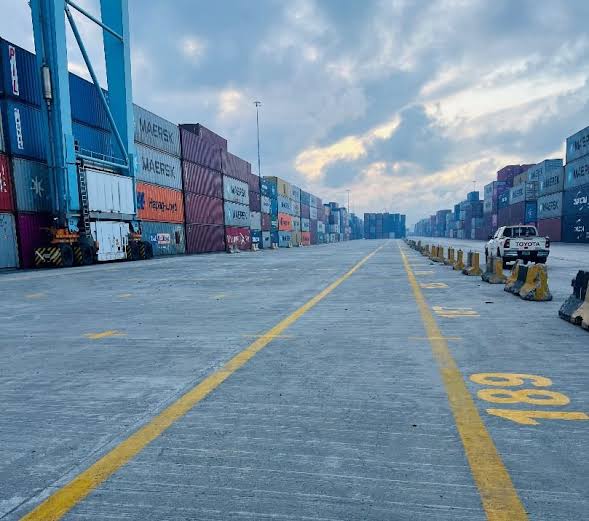A report by the Nigerian Institute of International Affair (NIIA) has declared that the hike in tariffs by the United States of America would hit Nigerian agricultural and manufacturing SMEs that have carved out a market in the U.S.
The report, which was prepared by the NIIA’s Bashir Adeniyi Centre for International Trade and Investment (BACITI), explored how the new U.S. trade policy undermines AGOA privileges, jeopardises non-oil exports, and places pressure on Nigeria’s fiscal and foreign exchange position.
It said: “In sum, Nigeria’s macro stability is at risk from a prolonged tariff war: possibly lower export revenue, a weaker currency, higher inflation, and strained government finances.”
It added: “Niche products like Nigerian cocoa butter, dried fruits, or textiles and apparels which entered the U.S. duty-free will become costlier and uncompetitive.
“Fertilizer makes up two to three per cent of Nigeria’s exports to the U.S. So, a 10-14 per cent tariff on fertilizer could lead U.S. buyers to seek cheaper suppliers, thus Nigerian producers might lose that market or have to accept lower net prices.
“While crude oil is less likely to be directly impacted by the new tariffs, the broader uncertainty stemming from the ongoing trade war is likely to exert downward pressure on global oil prices, thereby affecting Nigeria’s export revenues and fiscal stability.”
The report stressed that the indirect macro impact of the tariff, especially through a fall in oil prices due to slow global trade and economic uncertainty, would further reduce Nigeria’s export earnings and government revenue.
It said: “A $10 drop in oil price, for example, costs Nigeria billions in export earnings.
“A decline in Nigeria’s export earnings would reduce dollar inflows, placing pressure on the Naira. In times of global uncertainty or trade wars, investors often retreat from riskier markets.
“As a result, Nigeria could face capital outflows, further currency depreciation, and rising inflationary pressures.”
The report added that a fall in oil revenue would mean less funding for infrastructure, education, and other public services and more borrowing to fill the gap.
“Government revenue could also be affected by non-oil exporters earning less (though their contribution is much smaller). The government does not collect export tariffs, but it gains through corporate taxes and royalties from oil companies and some levies on non-oil exports. Lower profits for exporters could reduce tax receipts,” the report said.
It also pointed out that SMEs would be vulnerable to the tariff hikes and might have to cut production or lay off workers if orders shrink.
“Furthermore, SMEs are less equipped to pivot to new markets quickly – they often lack the networks and certifications to immediately shift to Europe or Asia.
“Small businesses, which are the engine of job creation, stand to be the unseen casualties.”
The report also said that the new tariffs would take a toll on Nigeria, which is trying to attract foreign investment and increase exports as “foreign investors might be concerned that Nigeria’s growth prospects, which is tied to oil and export diversification will face new hurdles, possibly slowing investment into the country’s non-oil sectors.
The NIIA recommended that Nigeria must view the U.S. tariff episode as a catalyst for structural transformation.
“The country’s long-term economic resilience depends on industrialization and a strategic shift from raw commodity exports to value added finished goods.
“To reduce vulnerability to external shocks, Nigeria must accelerate the diversification of both its economy and export base.
“Reducing over-reliance on crude oil is essential for macroeconomic stability and sustainable development. Priority growth sectors such as agro-processing, solid minerals, digital services, and manufacturing must be scaled through targeted investment, infrastructure development, and supportive policy frameworks,” it said.





